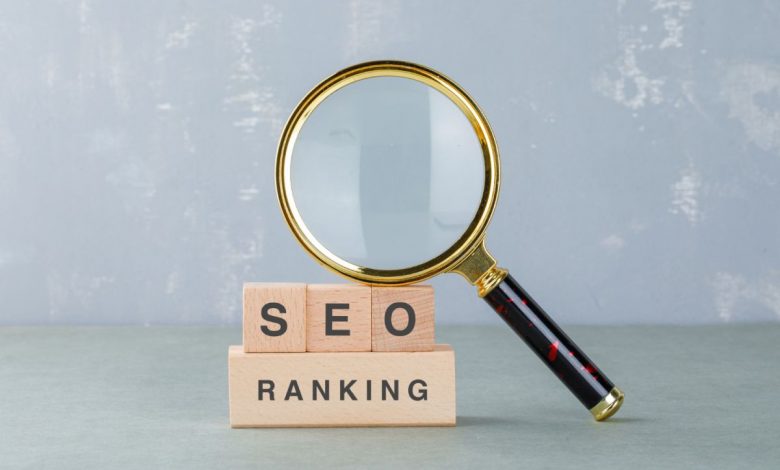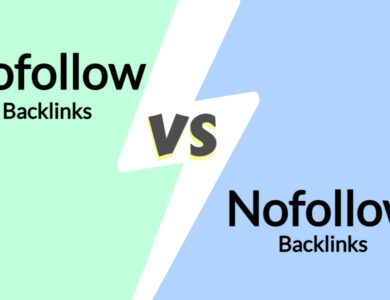
It might be frustrating at times to perform SEO on your website. Your website was in the top Google SERPs yesterday. However, when you repeated the same search today, you discovered that your site was listed on the second SERP. What then went wrong? Was your website trampled underfoot by a Panda or pockmarked with holes by a Penguin?
You can unwind a bit. Neither rapacious animals nor even their computational namesakes have attacked your pages. You have complete influence over how stable your website’s search engine ranking will be. If you see that your results fluctuate like the classic yo-yo, there are a few aspects of your SEO strategy and approaches that require close examination.
The next five problems are among the most frequent causes of fluctuating search engine rankings. Take a look at them, make a plan of action, and then carry it out. If you can correct these frequent mistakes, you should notice a difference.
How to Prevent Ranking Instability
It’s great to be aware of the issues you can spot and address to increase the stability of your rankings. But as with anything, prevention is always preferable to treatment. To thoroughly examine your website and find hidden ranking opportunities, use tools like Website Analyzer.
You owe it to your website and to yourself to develop an SEO plan to address each issue once you’ve recognized the SEO factors hurting your rankings, whether they are the problems mentioned in this essay or something else entirely.
A calendar of activities to routinely assess SEO effectiveness and consistently improve the material on your site should be part of your plan. You should avoid making too many changes at once by timing your SEO tasks. The website analysis will demonstrate the functionality of your site’s hosting server, keywords, and links, allowing you to take the necessary steps to increase ranking stability.
If you want to obtain steady website rankings, SEO doesn’t have to be difficult, but it does need to be well-planned and given enough attention.
Blog to Target Unachievable Keywords
On a product or service page of your website, you may occasionally be unable to target a particular keyword since it will just not fit and appear natural. You can benefit from constantly having a blog in these situations. Check the other pages that rank for that term by performing a quick Google search for it. After reading the pages’ content, start creating an epic blog post that, you are certain, will be of higher quality and contain more information than the other pages now ranked for the keyword. This is a great technique to attract long-tail traffic as well.
Changes, Changes, Changes
Even though variety is the flavor of life, overly altering your website will hurt its SERP ranks. It goes without saying that it’s critical to periodically update and renew your content. A website’s ranking stability will undoubtedly be impacted by making too many modifications all at once.
Poor Internal Linking
Poor internal linking can harm search engines’ capacity to index your web pages in a variety of ways, according to industry thought leaders. These include pointing to pages that require users to fill out forms in order to access them and even pointing to JavaScript or Flash-based content.
As a result, if your website’s rankings are erratic, you should make sure that all of your pages contain a ton of internal links that are neither broken nor go to non-crawlable pages.
Search engine spiders
Every day, a lot of search engine spider attempts to reach your website. Naturally, they will be unsuccessful if they try to do so while your hosting server is down. The search engine will flag your website as unreliable if it occurs too frequently, which will lower your website’s position.
Both host-server downtime and page loading speed (which can be affected by your hosting provider’s server performance) are factors in search engine rankings. As a result, if your server performance changes, so will the position of your website on search engine results pages.
Website Crawling Issues
Another common reason for ranking instability is the way search engine spiders index your page. Project manager at LunaMetrics Reid Bandremer provided a piece that provides a great explanation of this. Bandremer presents the three primary types of crawl concerns that might negatively impact the stability of rankings on the page, which is filled with a lot of technical information.
Inappropriate Keyword Mapping
The process of keyword mapping entails classifying relevant keywords for your website hierarchically according to their intent, relevance, and significance before further dividing them into groups and subgroups. The goal is to get each term you employ to have a clear connection to a single, dedicated page on your website, which must have content that is pertinent to the phrase. If you haven’t gone through this process, your page rankings are probably in flux, and improving the situation will probably require a reorganization that includes keyword-mapped pages and content.
Redundant content
Content that exists within a domain and is substantially similar to or identical to another piece of content is referred to as redundant or duplicate content. However, it will undoubtedly have a bad effect on SEO results even if it does not necessarily signify dishonest or malevolent behavior. It’s common practice to employ duplicate material to artificially boost traffic and manipulate results. That kind of behavior has been detected by search engine algorithms for some time, which can only mean significant ranking drops. Make sure your website doesn’t have any redundant or duplicate content because the search engines will penalize you for it.
Competition
There’s always a chance that you’re doing everything correctly and have exercised due diligence. Sometimes you lose visitors as a result of competitors performing somewhat better than you, which causes your SEO ranking to decline. But the world is not going to end. It’s a fantastic chance to keep an eye on and evaluate the competition, take what you learn, and apply it to your own website. The use of social media, link-building techniques, and content marketing are just a few of the things to watch out for and adhere to. You may absorb those modifications and perhaps even improve upon them after you are aware of what the competition has done or is doing to obtain a higher SEO position.
Natural fluctuations
Your website is normally more volatile the lower it is in the rankings, as opposed to when you are number one, which can result in some variances. It’s common to notice a brief drop in one or two places. Yes, the traffic may be slightly affected, but you generally stay in the top few spots on the first page. When you enter the double-digit range, the situation is different. There is a lot more competition when there are fewer points available. It makes sense that any tiny change could have a big influence in this area. In these circumstances, regularly publishing new, high-quality content is the greatest approach to set your site apart from the competition. A website’s improvement and, consequently, its SEO rankings come from natural, organic traffic. In addition, interesting content drives that kind of traffic. A week, if not every day, undoubtedly, search engine algorithms are altering. Both little modifications and significant updates are always being fine-tuned by machine learning. Regardless of size, each of these modifications will have a different impact on various websites. One can only genuinely adapt over time as there isn’t much one can do about it.
Inadequate hosting
Regularly, maybe multiple times per day, search engines will attempt to access your website. The effort will fail if that takes place while your hosting server is down. If that occurs repeatedly, the site may be labeled as unreliable by the search engines, which will have an impact on your rankings. Loading speed is another significant and related element in addition to host-server downtimes. The performance of your hosting provider directly affects this element, which is also considered when search engine rankings are determined. In other words, if our infrastructure is subpar and we frequently experience downtimes and performance issues, our Search Engine Optimization won’t be at its best.
The algorithms used to determine search engine rankings have had plenty of time to develop into mature, wise systems. Increasing website traffic and affecting search engine results cannot be done quickly. A successful SEO plan should focus on consistently improving a website’s content. It is a drawn-out, ongoing process that truly has no beginning or end. We adapt to changes in the market and competition.
Conclusion
The SEO industry is really cutthroat. Due to the dynamic nature of the worldwide market, search engines like Google frequently update their policies. Keeping up with all the changes can be a challenge. Your website may be ranked #1 one day in their algorithms and then fall to second place or even the bottom of the search result page the following day. What went wrong is the key question on everyone’s mind. The truth is that effective SEO strategies are always long-term focused; there are no short-term, easy fixes.
Additionally, they focus more on advancing broad trends than daily rankings. What moves up the leader board a few spots could also fall there a few days later by the same amount, if not more. Volatility has two sides, making it somewhat of a double-edged sword. As we can see, there are many things that might mess up our SEO rankings.







Amazing Information. Thanks to share the Wonderful Information.
Thanks to share the Wonderful Knowledge here. Thank You.
Thanks to share your knowledge here. Thank You.